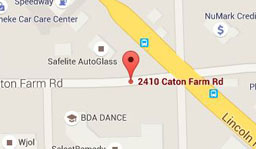9 Dental Conditions That Require a Prompt Dentist Appointment

Dental irregularities can affect us at any time of the day. These issues can slowly build up and worsen if not catered to as soon as possible. Understanding how these conditions affect you can help you appreciate a prompt dentist’s appointment. Here are nine dental conditions that you should not ignore.
1. Toothache
Toothaches, or odontogenic pain, result from inflammation, stimulation, or exposure in the dental pulp or peri-radicular tissues. If you have a severe toothache, rinse your mouth with warm water and floss your teeth. After, you should contact your dentist for a thorough check-up.
2. Damaged Tooth
Damaged teeth can result from a fracture that affects the enamel, crown, or root tissues. Collect and save the fractured or broken pieces and store them in a sanitary and enclosed parcel. Rinse your mouth and apply gauze to any bleeding regions. Also, compress some ice near the affected region to reduce swelling. Take the broken pieces with you when you visit a dentist.
3. Broken Jaw
You might dislocate your jaw if you yawn too hard or open your mouth too wide while you consume food. Also, traumatic injuries due to accidents and blunt force can dislocate or even fracture your jaw. While a hospital can deal with your broken jaw efficiently, dental trauma that results from the fractured jaw, like a malocclusion, will require more specialized expertise from a dentist.
4. Lost Tooth
If you lose your tooth from blunt trauma or another impact, try to find it as fast as possible. Rinse the root but don’t scrub away the tissue attached to it. Place it inside a package that contains milk then rush to a dentist. If you can reach the dentist within an hour, your chances to reattach the tooth will likely be successful with minimal surgical intervention.
5. Soft Tissue Injury
Soft tissue injuries that involve your tongue, cheeks, and gums can often lead to bleeding. You should rinse your mouth with a warm saltwater solution. Also, apply some ice to try and regulate the bleeding. If the bleeding does not stop, you should visit your dentist for a more effective solution.
6. Damaged or Loose Tooth Filling or Crown
Damaged or lost fillings can often cause discomfort due to the jagged edges left on the affected tooth. Also, the individual may feel socially uncomfortable if the affected tooth is clearly visible. If you lose a filling or crown, do not lick the area, as the jagged edge might injure your tongue. Instead, visit a dentist to get a refit as soon as possible to avoid damage to soft tissues in the area.
7. Broken or Loose Denture
Drops, improper fittings, and stability issues can damage your dentures or make you lose them if they fall out of your mouth. If the denture gets damaged, it is better to get a new one than fix the broken one. Ensure you consult your dentist when you replace the denture to get tips on maintaining the new one. Also, the new fit should be as tight as possible to minimize accidental drops from the mouth.
8. Dislodged Tooth
Periodontal tissue damage can partially dislodge teeth from their natural resting position. Subluxations are the least damaging traumatic events, with injury to the supportive tissue that can dislodge the tooth.
However, serious issues like avulsion can cause complete dislodgement and permanently damage pulp tissue. Thus, you should receive immediate attention from a dentist to increase the chances of tooth recovery if it becomes dislodged.
9. Severe Oral Conditions
Severe dental and oral conditions like dental abscesses can affect more than your oral health. Dental abscesses can swell your face and jaw if left untreated for extended periods. These conditions require you to visit a dentist for further medical assessment and intervention.
Contact us at Crest Hill Family Dental to book a dentist’s appointment.

